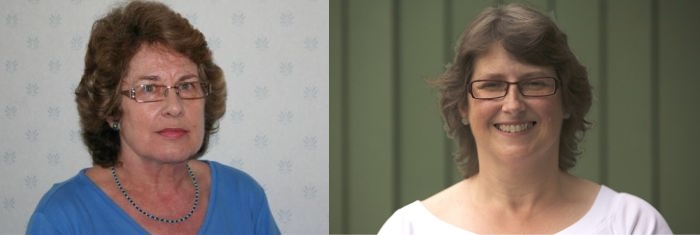In this conversation, bereavement service co-ordinator Dodie Graves and creative writing tutor/bereavement group leader Jane Moss talk about their experiences of facilitating bereavement groups and some of the creative techniques that can help people express themselves.

Dodie: My experience of groups goes way back to being a participant during my seminary days, when we had to work collaboratively to get projects completed. It always seemed to me to be a most unhelpful and unfair way of doing things, as there were a few of us that would do the work and a few who would be “carried”. I suppose after that I wanted to make sure that groups I was in were more structured and constructive and I guess I took that into my counselling training when it came to doing a module on groups. In my own “group work” I was looking for clear and safe leadership and a place to be myself in secure hands. This, I think, is what I have wanted to create for bereaved people in groups, where they already feel vulnerable and want to find a safe place to share some deep things.
Jane: This rings lots of bells with me. As a writer working in bereavement support (through Cruse Bereavement Care and in partnership with hospice counselling teams), I find that the people who come to my writing groups are looking for something more structured than a talking group. They want to try writing as a means of self-expression, but attending a group also seems to offer them a safe place in which to compare their experiences and stories with others. They often take their writing into one to one sessions too, which can be helpful.
Dodie: It’s so good for them if they can get a benefit in that way. Being in a group can be quite scary for the participants as they will have to contend with others’ opinions of them and others’ needs. There are some real advantages to attending a group though, once the initial apprehension has passed and the group starts to feel cohesive. Bereaved people who join a group are coming into a “community” of suffering and they can start to be there for each other, they can share together, cry together and encourage one another. They can also get advice from each other that they wouldn’t get from being in a one-to-one counselling session.
Jane: That’s so true. People are always nervous at the first meeting. I hear worries such as ‘I can’t spell’, or ‘I was rubbish at writing essays at school’! It’s part of my role to reassure people that spelling and grammar don’t matter; you can always go and tidy it up later. It’s much more about finding the confidence to express yourself in your own voice and share with others who empathise with you. I believe the arts are a great way for people to open up about things they might find hard to talk about or even give a name to. The great thing about writing is that it is so accessible. All you need is a pen and paper, and the page is available any time of day or night.
Dodie: As a facilitator, I think you also have to have an added dimension – a real appreciation for the power of the written word. I have found getting people to write and also to work creatively with their emotions and their thoughts can be powerful. Having tried some group work with creative exercises, I would love to try the approach that you, Jane, have taken with bereaved people coming together to write creatively about their grief.
Jane: When I first started thinking about ways to bring writing and bereavement support together, you, Dodie were one of the people who inspired me. I think we’re both quite practical people, and writing is such a practical activity. I have found that some people want to write directly about their grief, whereas others prefer not to. At first this worried me because I thought some people might feel forced into writing about sad experiences; but in practice I find that people write about whatever they need to. I use themes and structured exercises a lot – for example, journeys, family stories, anniversaries – and I often offer a published poem or extract from a story to provide people with a starting point, so they can respond in any way they want to. People often express pleasant surprise at the results, saying that they hadn’t expected to write about a happy memory or a positive emotion such as hope.
But going back to your first point, Dodie, about the value of providing structure, I often find that some people in a group will participate fully while others stay quiet. These are the ones I work hard to engage with. Offering short writing forms like lists, acrostics or haikus (short poems of three lines of five, seven and five syllables) can work well. If someone is feeling shy or tongue-tied in the face of big difficult emotions, a word limit or a specific focus seems to help them contain what they want to express.
Dodie: I guess in a “talking” support group, we might feel more at ease with people who are quieter, as long as they are engaged in the process. It’s the dominating ones that can cause us concern. These people need to be encouraged to find their place but not take over. Facilitating groups with a number of unknown people is a real adventure!
Copyright © Jessica Kingsley Publishers 2012.
This is a very honest and moving conversation between two people who have captured the essence of what it is to be bereaved. We’re dead for a very long time and bereavement is something felt by the person who is dying as well.